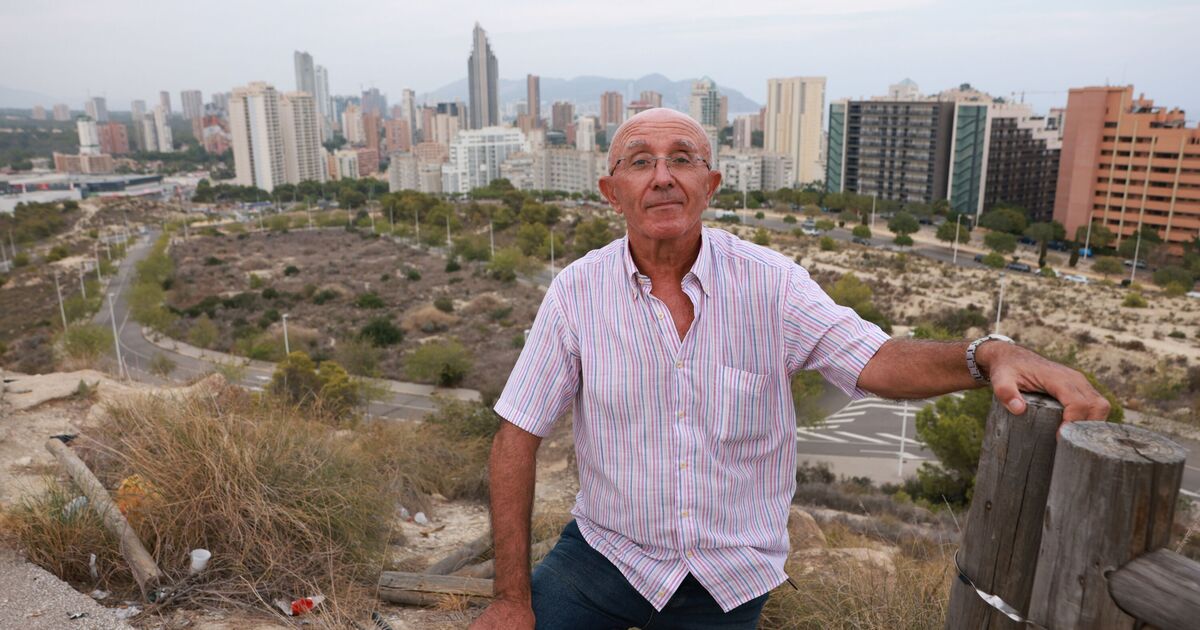Enviromental campaigners around Benidorm have echoed the calls of activists in the Canary Islands and the Balearics and demanded restrictions on tourism amid a crisis in the water supply.
Express.co.uk travelled to Villajoyosa, 30 minutes from the Brit holiday hotspot, to speak to activists from environmental group Xoriguer Ecogical.
Jaime Vaello, a senior representative of the organisation, explained that the rampant tourist trade in the area was bringing riches, but with costly consequences.
“From a social perspective, the consequences of tourism are not different from other tourist regions in the Mediterranean area”, he said.
The campaigner, who is a physio by trade, said that the throngs of tourists that descend on the town every year cause “saturation of public services”, “loss of native culture”, and expose local Spaniards to “anti-social activities”.
He argued that local government should impose a cap on tourists coming to the area, however he did not specify what that cap should be.
Beyond costs of tourism that Mr Vaello claimed were typical of any resort in the Med, the campaigner added that the ever-increasing infrastructure demands of the holiday trade was damaging the landscape and causing water shortages.
“The urban development activity associated with the tourism industry is largely responsible for the landscape degredation and the alteration of ecosystems”, he explained.
“As for water”, he added, “the excessive increase in its consumption is due to greater population and its use in swimming pools [and] gardens in the countless residential developments in the area.”
In August, when Express.co.uk visited the Benidorm area, there were water restrictions in place in towns in the nearby Marina Alta region. Stopping off at the Amadorio reservoir a few miles outside of Benidorm, it was clear that water levels were lower than capacity.
Mr Vaello believed that the reservoir was at just 12 percent capacity, due to the exceptionally hot weather and demand for water from tourist and residential facilities.
“The lack of water is a direct threat to the quality of life of the region’s inhabitants and endangers the already very deteriorated agricultural sector”, he added.
He went on to criticise the “creation of macro-residential complexes in natural areas of high ecological and landscape value”, and added that with local authorities’ continued pursuit of development he expects more “water deficits” into the future.











